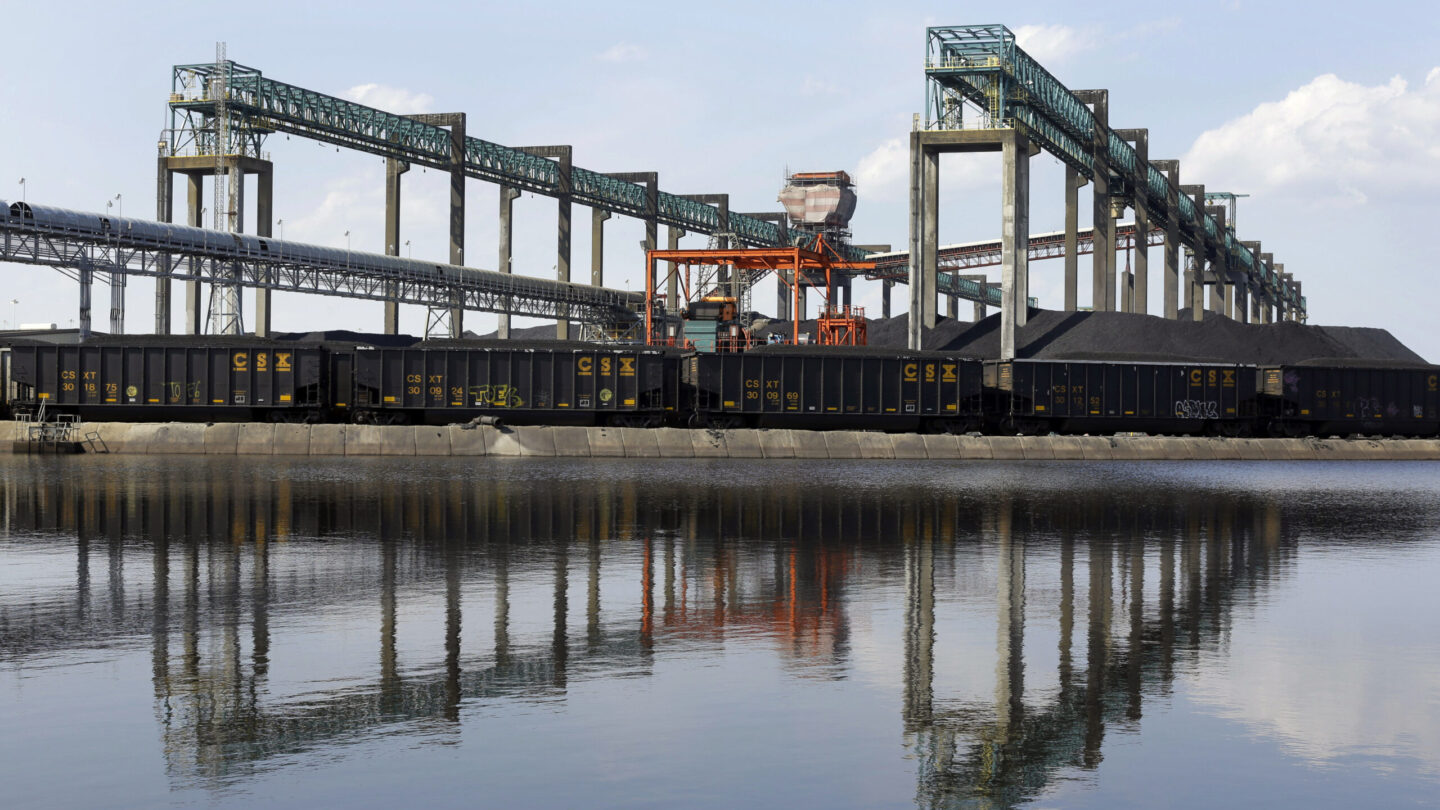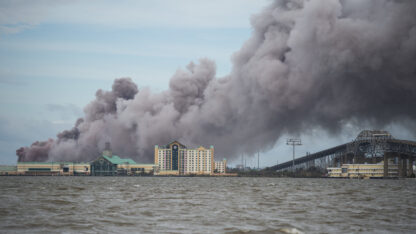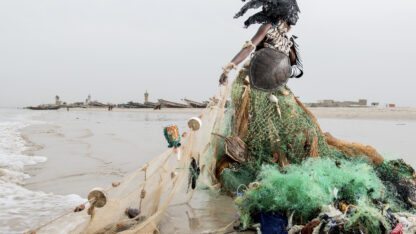Pipeline spill in Lawrenceville — now being cleaned up — first went undetected

Cleanup is ongoing at the site of an oil pipeline spill in Lawrenceville that went undetected for weeks before being found.
According to company Kinder Morgan, its pipeline was shut down as of last week, but it is now repaired and back in service. The company estimates 420 gallons spilled near the Grayland Hills subdivision, though experts caution that number could change.
Residents had reported natural gas smells to local authorities for several weeks, according to a corrective action order from the U.S. Pipeline and Hazardous Materials Association, or PHMSA. On Feb. 22, someone found oil, and the Gwinnett County Fire Department confirmed that it was diesel in a storm drain coming from the pipeline. According to PHMSA, five households were evacuated because of the around-the-clock excavation and heavy equipment use needed to respond to the spill.
Kinder Morgan had not gotten any alarms or other indications about the leak.
That’s not unusual, according to Bill Caram, executive director of the advocacy group Pipeline Safety Trust. He said while there are federal regulations requiring pipeline operators to have leak detection systems, the rules don’t set standards for how strong or sensitive those systems need to be, and it can be tough to pinpoint a leak.
“In an ideal world, Kinder Morgan would have a really robust leak detection system on this pipeline. And they would know very quickly when there was product leaking out of their pipeline, and they could respond to it,” he said. “In this case, their leak detection system never detected anything. And they had to rely on a resident spotting it.”
Caram’s group has been pushing for an update to the leak detection requirements.
The pipeline, which is owned by Kinder Morgan subsidiary Products (SE) Pipe Line Corporation, carries petroleum products from Louisiana to Virginia, delivering jet fuel, gas, diesel and biodiesel to Southern states along the way.
The pipeline dates back to 1968. PHMSA said it issued notices in the late-1980s about the potential for failures of pipes of that type that were built before 1970. It also cited the San Bruno, California, natural gas pipeline explosion that killed eight people in 2010 to emphasize the need to monitor older pipes.
According to PHMSA, Products (SE) Pipe Line Corporation had previously found two dents in the pipe near where the spill happened, but the company said they were not “actionable.” The last assessment of the pipe was in 2020.
A Kinder Morgan spokeswoman said they’re working with PHMSA to figure out the cause of the spill.
Caram said nationwide, there’s a “reportable incident” on a natural gas or hazardous liquids pipeline about once a day, but pipelines are still safer than other options.
“When you look at the different ways to transport hydrocarbons, whether it be by rail or by truck or by pipeline, despite that incredible incident rate, pipelines are still by far the safest way to move hydrocarbons,” he said.
Environment Georgia state director Jennette Gayer said in a news release that the spill in Gwinnett “could and should be a relic of the past as Georgia and the rest of the country make major investments in clean electric transportation.”
“This dangerous leak is a reminder that it’s long beyond time for Georgia to transition from dirty fossil fuels to a clean energy future,” she said.
According to a spokesman for the Georgia Environmental Protection Division, the focus is now on cleanup rather than emergency response.








